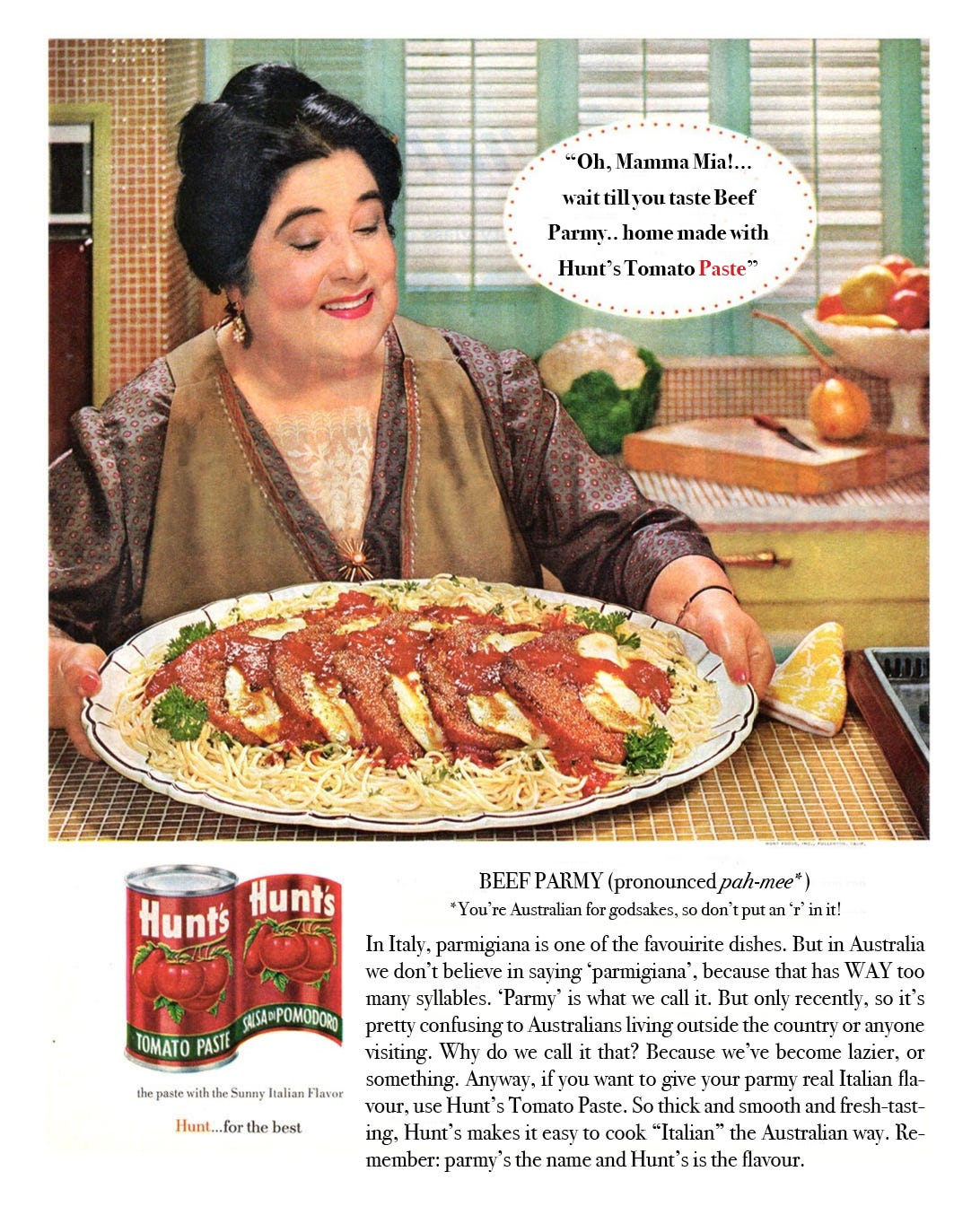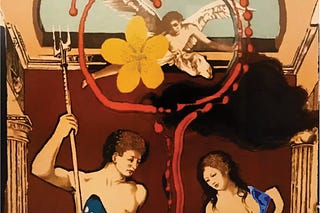I am currently in Sydney for work and a few days ago I had one of those experiences that make me feel nostalgic as an Australian who has lived outside the country for many years. I went into a shop and the assistant (who had to be half my age) said, ‘Do you need some help, darls?’ ‘Darls’, of course, is short for ‘darling’. I don’t recall hearing the term used outside Australia, although British shop assistants—especially Northern ones—readily employ terms like ‘love’, ‘sweetheart’ ‘poppet’, ‘pet’ and ‘my lovely’.
‘Darls’ is one of those quintessentially Australian forms of English that speaks to our tendency to shorten, well, everything—a tendency shared by our Kiwi brethren.1 Of course, Aussies are hardly alone amongst English speakers in using shortened or diminutive words as nicknames. Instead, the difference relates to the frequency with which we do so.
In this respect, our attitude towards shortening words is much like our attitude towards swearing. The philologist Sidney Baker once said that ‘Australians do not use more vulgarisms than the English and Americans. They merely use some of those vulgarisms more often’. Still, when it comes to diminutives, we not only use them more frequently, we definitely use more of them.
According to the linguist Chiu Luu, there are five primary approaches to shortening words in Australian English: –y/ie endings (‘exxy’ for expensive, ‘mozzie’ for mosquito), –o endings (‘arvo’ for afternoon, ‘rego’ for registration), –s endings (‘turps’ for turpentine, ‘darls’ for darling), -ers/as endings (‘Maccas’ for McDonald’s and ‘champers’ for champagne) and –z/za endings (‘soz’ for sorry, ‘Gazza’ for Garry). You can see illustrations of all these types of abbreviations in the following guide to ‘How to speak Australian’.
Of these different forms, the linguists Kate Burridge and Howard Manns argue that we have a distinct preference for –y/ie and –o endings, although I’d say the latter form is more distinctively Australian (despite coming to us courtesy of the Irish). For instance, I’ve never heard terms like ‘garbo’, ‘servo’, ‘bottle-o’ or ‘smoko’ used outside Australia, but I suspect that Brits can claim responsibility for ‘brekkie’, ‘postie’ and ‘undies’ (and probably ‘cuppa’, for the record).
There are several theories on why Australian English is so rife with diminutives, especially given that such terms are typically associated with childish speech, which is why Americans seem less prone to using them as slang.2 As Luu observes,
‘The act of nicknaming is not unusual in itself—other dialects of English do it too, in similar morphological ways, but perhaps in more restricted contexts, such as… baby talk and pet names. It’s just that Australian English speakers (along with our trans-Tasman cousins, the New Zealanders), seem to regularly do it so much more, and in much wider social and speech contexts’.
One popular theory is that it’s due to linguistic laziness—that basically Australia is full of Print Valium types (from Spaceballs) who can’t be arsed finishing words or sentences. However, as I have previously discussed, this theory is belied by the fact that when it comes to personal nicknames, extra syllables are frequently added, especially if the original name only has one syllable. As Luu notes, ‘though nicknames might generally end up as a shorter, easier version of something, length is probably not the most crucial aspect of a nickname. Rather, nicknames carry certain other pragmatic senses, such as a rejection of formality, and breeding familiarity’.
The most convincing explanation comes to us via the work of the anthropological linguist Anna Wierzbicka. As I’ve discussed at length in previous posts on personal nicknames and the cultural differences between moaning and whingeing, Wierzbicka argues that Australian English reflects core cultural values of solidarity, equality and anti-sentimentalism—evident in our both our predilection for shortening words and our penchant for swearing.
For example, nicknames like ‘sav blonk’3 for sauvignon blanc cut the expression down to size in more ways than one, transforming a fancy foreign word into an Australian one: informal, familiar and lacking in pretension. After all, ‘blonk’ sounds virtually identical to ‘plonk’ (probably not coincidentally), which is the generic Australian term for cheap wine.4 Interestingly, the expression has travelled widely enough that when I order a ‘sav blonk’ at London pubs, at least a third of the time they know what I’m referring to.5
If Australia has given the world one thing (beyond, obviously, innovative forms of break-dancing) it’s a new vocabulary. For example, Burridge and Manns observe that Australians are responsible for globally recognised expressions like ‘greenie’, ‘pollie’, ‘surfie’, ‘mozzie’ and ‘budgie’ (along with its offshoot, ‘budgie smugglers’), not to mention the now-ubiquitous ‘selfie’.
In many respects, this globalisation of Australian words belies longstanding concerns about the Americanisation of Australian English—a view that linguists have consistently disproven. While some stereotypical Australianisms, like ‘g’day’, are noticeably less common today than in the past, numerous other expressions have arisen in their place.
I first noticed this on a visit to Townsville earlier this year, when my brother-in-law recommended that my husband and I visit a local tavern that had great ‘parmies’. Although my husband is also Australian, neither of us had a clue what he was referring to. This is because when we left Australia at the beginning of 2006, chicken and veal ‘parmigianas’ were a thing but ‘parmies’ weren’t. In contrast, the latter term is so widespread today that cafes don’t even bother writing out ‘parmigiana’—they’ll simply list the different ‘parmies’ they have on offer.
As Burridge and Manns note, slang is constantly changing—an observation that anyone who was forced to read Chaucer or Shakespeare in school will find it hard to dispute. Diminutives are particularly susceptible to changing linguistic whims. An example Burridge and Manns provide is of –ling endings. They note that these are probably our oldest word endings, dating back to Anglo-Saxon times; remnants of their influence can be found in words like ‘twinkling’ and ‘darling’. However, this word ending has largely died out due to the negative connotations it has accrued over time—as illustrated in expressions like ‘weakling’ and ‘underling’.
In contrast, Burridge and Manns observe that –ie/y words have become more popular, although our stock of such terms is constantly changing. For example, ‘scottie’ was big in Melbourne in the 1980s as a means of describing a person with no friends (as in ‘s’got no friends’), but is no longer in widespread usage.6 Still, the 1980s and 1990s have given us plenty of other –ie/y words—like ‘firie’ (fireman/woman), ‘tradie’ (tradesperson) and ‘trackies’ (track suit)—that are still in widespread use. To quote Burridge and Manns, ‘Slang might come and go, but the process that transforms sunglasses into sunnies and tracksuit pants into trackies continues to thrive’.
This process is now arguably the most characteristic feature of Australian English, as younger generations have increasingly discarded distinctive old Australianisms like ‘g’day’, ‘drongo’, ‘nong’, and ‘chiack’. As Australia has become more multi-cultural, it makes sense that our slang has focused more on Australianising (a.k.a. ‘strayafying’) existing terms rather that creating entirely new ones.
So that ‘parmy’ my brother-in-law was talking about? It’s not just an Australian term for an Italian dish, but the cultural glue that holds Australians together, because it turns out that what unites our nation isn’t our love of Italian food and French booze, but, to quote Chi Luu, a ‘rabid obsession with nicknames’.
Related posts
This is the last you’ll hear of Kiwis in this piece, but just assume that whatever I say about Australian English is applicable to New Zealand English as well. Although linguists frequently suggest that Australian English involves more hypocoristics than other forms of English, Kiwi linguists take strong exception this, based on the fact that New Zealand is constantly overlooked. Poor Kiwis: always the bridesmaid, never the bride. Well, except when it comes to rugby. And good skiing. And sheer volume of sheep. And I hate to say it, but they probably did invent pavlova.
Unless, as one Reddit poster points out, they’re Billy Ray Cyrus and his ‘Achy Breaky Heart’. Somewhat embarrassingly, ‘Achy Breaky Heart’ was the first single ever to achieve triple platinum status in Australia. I can only speculate that this is because of all the diminutives it contained, given that the song is so intensely annoying, it inspired Weird Al Yankovic’s ‘Achy Breaky Song’.
Interestingly, when you type ‘sav blonk’ into Google in Australia, it immediately brings up information on where you can purchase a bottle of sauvignon blanc. The question is whether Google does this in other countries—a mystery I will not be able to solve until I return to the UK. (An even bigger question is whether you’re immediately placed on a government watch list if you dare to type ‘sav blonk’ into Google in France.)
Well, one of them. There are a dizzying array of terms in Australian English for alcohol. Some refer to specific types of booze and others are generic terms for alcohol. ‘Grog’, ‘piss’ and ‘turps’ fall into the former category, and ‘goon’, ‘tinnie’, ‘coldie’, ‘frothie’, ‘chardy’ and ‘champers’ fall into the latter. Not all these terms are Australian in origin (e.g., piss* and grog), but the localised terms—as opposed to the ones we inherited from the Brits and Irish—are mostly diminutives, and follow the five rules already outlined.
*However, Brits are more likely to use ‘piss’ as a synonym for drinking than for alcohol itself. Australians talk about ‘getting pissed’, but we also talk about ‘getting on the piss’. This is further evidence of our complicated relationship with urine.
Of course, the other two thirds of the time I get an expression of blank incomprehension, but I consider it my duty to help Londoners make their language more efficient by using the term, regardless of whether they understand it or not. For the record, this is also my reason for constantly using ‘arvo’ in every country I’ve lived in, despite the bewilderment it generally produces. I don’t understand why it hasn’t caught on globally, although I suspect that the complete lack of visual and aural resemblance between ‘arvo’ and ‘afternoon’ (at least based on how North Americans pronounce it) is part of the reason.














As you lived in Canada, you might know that shop and other “service personnel” are most unlikely, if ever to address customers as Dear, Dearie, Pet, or Love. As a 10 year old visiting New York, I was nonplussed to hear, in stores or restaurants, to hear the aunt I was with addressed as “Hon”, all the more because the stereotype of a New Yorker was not one of warmth or friendliness. On my next visit, some 7 years later, I understood that it meant little. In Canadian encounters one is far more likely to hear Madam, Ma’am or Miss (or Sir).
As for -ie/y endings used by adults, a relatively recent one here, in print, online (I do not associate with anyone who uses it in speech) and which to me just sounds childish and childlike, is “bestie”, for what used to be simply “best friend”.